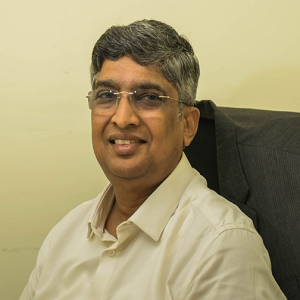“Employers play a big role in workers’ lives, beyond providing a paycheck. They can help people understand - and manage - their finances & plan for the future.”
It used to be that workers in China retired around age 50-60, and then lived off pensions and savings. But now that people are healthier and living longer, many plan to work even in retirement, simply because they want to, but more likely due to financial need.
This is also true across growth markets, where the expanding middle class is optimistic about the future, but need the tools to make sure they can maintain their quality of life in their later years.
The change in retirement is particularly apt in China. Today, people in China expect to spend 20-25 years in retirement — above the global average of 15-20 years. These realities require flexibility in benefits and savings and affect decisions to continue working or adjust lifestyles accordingly.
Mercer’s recent study, Healthy, Wealthy and Work-Wise: The New Imperatives for Financial Security, looked at the forces that impact financial security and beliefs about retirement. The 12-country study surveyed adults across six age groups, as well as senior executives in business and government.
The results from China offered a glimpse as to how the country views retirement, especially as its middle class grows, urbanization expands, and the nation promotes to delay the retirement age.
What Retirement Looks Like: Longevity and Work
Three-quarters of Chinese adults expect to live past age 80 and nearly as many -- 70 percent -- expect to maintain their quality of life after retiring. Yet only 43 percent are confident they have saved or invested enough to provide income for retirement. Significantly, 65 percent do not ever expect to retire or expect to keep working in some capacity after retirement. Eighteen percent specifically cite they plan to work in some capacity as a source of their retirement income.
People in China are also more likely to see themselves living past age 100 compared to other nations surveyed. For many, the statutory retirement age belongs to a bygone era, since if people live longer, they likely will want to, or have to, do some kind of work after they retire.
Retirement Views by Age
People in China are working longer, either by choice or from economic necessity. The younger they are, the more they expect to keep working. Seventy-three percent of 18- to 24-year-olds and 71 percent of 25- to 34-year-olds reported that they plan to keep working in retirement. Expectations for the 35 to 44 age group is actually the lowest at 56 percent. However, for those closer to retirement, it rises to 62 percent among both the 45-54 and 55-64 age groups, which was contrary to the global findings at 54 percent.
The Chinese view of a good lifestyle in retirement is being able to spend time with loved ones. Forty-three percent -- more so than other nations — expect to be able to maintain their desired quality of life after fully retiring. They are prepared to save more now and take on part-time work to make this happen.
Funding Retirement: Government Pensions and Employers
People are using a variety of sources to help with retirement planning and spending, and see a key role for government in performing those calculations and ensuring they have enough — more so than in other nations.
The Mercer study suggests that the Chinese place a heavy reliance on external sources — such as government, pension funds, employers, family, life insurance and financial advisors — to provide for them in retirement, and trust of all as potential sources of financial advice.
At 91 percent, nearly all the respondents invested in a retirement plan of some sort — 50 percent employer, 43 percent government and 35 percent personal — ranking China among the highest in the global study. However, nearly a quarter, 24 percent, had not calculated how much they need for retirement and only 43 percent are confident that they can save enough for retirement. Even though 67 percent trust financial advisors recommended by their employer, it’s notable that only 20 percent have made their calculations with assistance from a financial advisor.
People expect to live off their personal savings plus a government-provided pension and are paying into plans accordingly. Having access to employer-driven advice, plans and opportunities is important to Chinese workers. If their employer were to provide access to or improve the overall benefits of the pension plan available to them, the vast majority say it would have a positive effect.
Uncertainties About the Future
Stress – notably work-related stress – is notoriously high in China, and the idea of health management is getting more attention in the country, beyond basic medical check-ups. It may take employees and companies several years to see the benefits of robust health plans – which could include wellness and mental health offerings -- but with a new generation coming up the ranks in the workforce, it could be key to keeping workers engaged in the organization.
Although the global study shows stress is universal, women and younger people felt the most stress. In China, the levels are at parity – 53 percent of all adults are at least somewhat stressed: 54 percent of women and 52 percent of men.
Personal health causes the most stress regarding financial security at 56 percent, followed by general economic conditions at 47 percent . Not saving enough for retirement ranks third at 29 percent, among the lowest in the global study, only slightly higher for women at 31 percent and slightly lower for men at 27 percent.
Financial stress is highest among the younger groups — 56 percent of 18- to 34-year-olds and 35- to 54-year-olds.It decreases to 38 percent for those over 55. Yet, 83 percent are “mostly certain” they can cover short-term financial emergencies, among the highest globally. In China 86 percent of people are willing to change their current lifestyle, realizing they must make trade-offs to afford to live longer, such as saving more or living a leaner lifestyle.
The uncertain bottom line: less than half, 49 percent, of people in China are confident they will be able to afford to live as long as they might. Therefore, living well now and in the future requires better planning and readiness.
The Needs of the Next Generation
More than any other segment in the survey, 72 percent of millennials in China expect to keep working in later life and, yet, even more, 76 percent, expect to maintain their desired quality of life in retirement. It is evident they need assistance in calculating the income needed for retirement: only 9 percent of Millennials have made the calculations themselves, while 77 percent have done so with help.
As digital natives, not surprisingly, they are the most interested in online tools and mobile apps. In fact, nearly all, 99 percent, of 18- to 34-year-olds say online financial tools are of interest and 94 percent are willing to allow online apps to hold personal information — among the highest levels in the global survey.
Among adults in China, they also have the highest level of trust (88 percent) in their employers to give good financial advice. Also, employers who offer better savings and investment benefits have a positive impact among 99 percent of 18- to 34-year-olds — the highest globally — resulting in higher job satisfaction as well as greater commitment and loyalty to the organization.
Employers play a big role in workers’ lives, beyond just providing a paycheck. They can help people understand – and manage – their finances and help plan for the future. Workers are open to being guided, largely because for many, the tools for retirement didn’t exist before. In an emerging market like China, this is huge opportunity for organizations.





 India's NPS has gone through a few iterations and continues to evolve, but the plan is helping to boost retirement savings among Indian citizens. It's also shifting citizens' expectations: Instead of relying on younger family members to support them in their old age, many are now adjusting their savings and preparing to support themselves in their retirement years.
On top of that, NPS is one of the cheapest investment products. Overall costs of the NPS are far lower than those of other products, and it is perhaps the cheapest pension product available.
3 Lessons You Can Learn From India's Model
For organizational leaders around the world, India's experiment in providing a national pension program for all its citizens offers a number of valuable lessons.
1. Unsustainable National Debt Requires New Solutions
Long before the NPS was launched, India's federal and state government employees were covered by a tax-funded defined benefit pension program that provided a 50% replacement wage at retirement with an inflation-linked adjustment. In the mid-1980s, this program cost the country less than $0.5 billion annually, but by 2006, with people living longer, the price tag jumped to more than $600 billion per year.3
Maintaining the program was unsustainable, and leaders realized they needed to develop a replacement program to ensure successful retirements for future workers and protect the nation's finances. Since the launch of NPS, all new government employees have been enrolled in it, fostering a responsibility among workers to prepare for their own retirement and protecting the government from continuing to run up unsustainable pension debt.
2. Tax Advantages Are Key for Supplementary Retirement Savings Plans
Most participants choose to invest in the NPS due to the tax benefits. However, some Indian citizens report that they did not opt for participating in the NPS as they perceived that some mutual fund instruments and private retirement savings vehicles have greater potential to beat the market and also provide better tax benefits.
In order to encourage citizens and promote NPS, the government developed three categories of tax-saving options. The third of these options is exclusively for salaried employees whose contributions are made through the corporate model of NPS. All three categories can be availed together and exclusive of each other.
Moreover, there was a recent relaxation in the tax-free withdrawal limit of corpus allowed at the time of retirement (from an earlier limit of 40% of corpus to 60% of corpus). Originally, though 60% was allowed to be withdrawn, the balance of 20% was taxed at normal rates, and making it entirely tax free has made it even more attractive.
While a few senior executives may have access to other retirement savings plans, including employer-sponsored Defined Contribution superannuation plans, most of the population (particularly among the working class) do not have access to other retirement savings plans, and hence, the tax advantages inherent in NPS are crucial encouragement for them to save for retirement.
3. Citizens Need Education About the Model's Benefits
While the NPS offers a number of benefits to savers, participation rates remain relatively low.4 Some respondents to a recent survey revealed that not understanding the importance of saving and the advantages of compounding interest could have influenced their choice to stay out.
NPS leaders have used a variety of methods for communicating and educating the population about the system. For instance, pilot programs staged in two different geographic areas hosted workshops, meetings and camps targeting unorganized sector workers and key stakeholders. Information was also distributed through cable television networks, radio, mobile publicity vans, seminars and road shows.
India continues to measure the success of its pension program and may make more changes in the future. Many countries are struggling to solve the potential challenge of poverty in old age, but the NPS in India is an encouraging step toward protecting the future for many of its citizens, and it's worth taking a look at the model for inspiration.
Sources:
1. United Nations: Department of Economic and Social Affairs,"World Population Prospects — 2017 Revision: Global life expectancy," United Nations: Department of Public Information, June 21, 2017,
India's NPS has gone through a few iterations and continues to evolve, but the plan is helping to boost retirement savings among Indian citizens. It's also shifting citizens' expectations: Instead of relying on younger family members to support them in their old age, many are now adjusting their savings and preparing to support themselves in their retirement years.
On top of that, NPS is one of the cheapest investment products. Overall costs of the NPS are far lower than those of other products, and it is perhaps the cheapest pension product available.
3 Lessons You Can Learn From India's Model
For organizational leaders around the world, India's experiment in providing a national pension program for all its citizens offers a number of valuable lessons.
1. Unsustainable National Debt Requires New Solutions
Long before the NPS was launched, India's federal and state government employees were covered by a tax-funded defined benefit pension program that provided a 50% replacement wage at retirement with an inflation-linked adjustment. In the mid-1980s, this program cost the country less than $0.5 billion annually, but by 2006, with people living longer, the price tag jumped to more than $600 billion per year.3
Maintaining the program was unsustainable, and leaders realized they needed to develop a replacement program to ensure successful retirements for future workers and protect the nation's finances. Since the launch of NPS, all new government employees have been enrolled in it, fostering a responsibility among workers to prepare for their own retirement and protecting the government from continuing to run up unsustainable pension debt.
2. Tax Advantages Are Key for Supplementary Retirement Savings Plans
Most participants choose to invest in the NPS due to the tax benefits. However, some Indian citizens report that they did not opt for participating in the NPS as they perceived that some mutual fund instruments and private retirement savings vehicles have greater potential to beat the market and also provide better tax benefits.
In order to encourage citizens and promote NPS, the government developed three categories of tax-saving options. The third of these options is exclusively for salaried employees whose contributions are made through the corporate model of NPS. All three categories can be availed together and exclusive of each other.
Moreover, there was a recent relaxation in the tax-free withdrawal limit of corpus allowed at the time of retirement (from an earlier limit of 40% of corpus to 60% of corpus). Originally, though 60% was allowed to be withdrawn, the balance of 20% was taxed at normal rates, and making it entirely tax free has made it even more attractive.
While a few senior executives may have access to other retirement savings plans, including employer-sponsored Defined Contribution superannuation plans, most of the population (particularly among the working class) do not have access to other retirement savings plans, and hence, the tax advantages inherent in NPS are crucial encouragement for them to save for retirement.
3. Citizens Need Education About the Model's Benefits
While the NPS offers a number of benefits to savers, participation rates remain relatively low.4 Some respondents to a recent survey revealed that not understanding the importance of saving and the advantages of compounding interest could have influenced their choice to stay out.
NPS leaders have used a variety of methods for communicating and educating the population about the system. For instance, pilot programs staged in two different geographic areas hosted workshops, meetings and camps targeting unorganized sector workers and key stakeholders. Information was also distributed through cable television networks, radio, mobile publicity vans, seminars and road shows.
India continues to measure the success of its pension program and may make more changes in the future. Many countries are struggling to solve the potential challenge of poverty in old age, but the NPS in India is an encouraging step toward protecting the future for many of its citizens, and it's worth taking a look at the model for inspiration.
Sources:
1. United Nations: Department of Economic and Social Affairs,"World Population Prospects — 2017 Revision: Global life expectancy," United Nations: Department of Public Information, June 21, 2017, 




